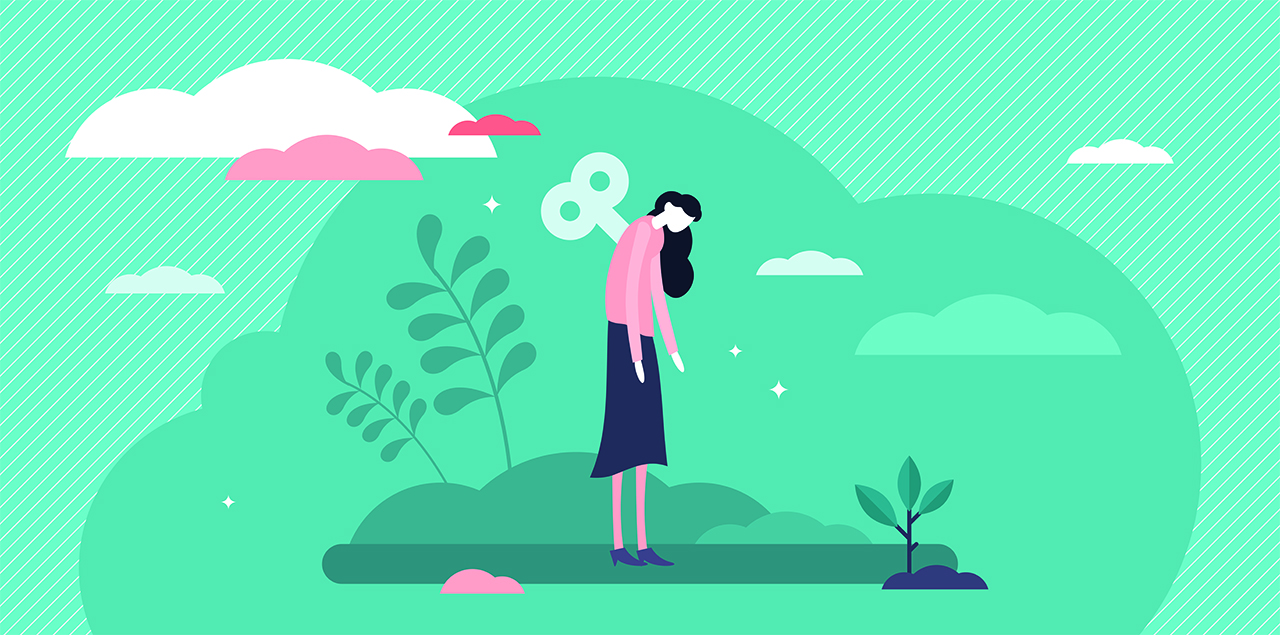
Ali Ryan's research into the relationship between self-care, difficult work settings, burnout and mental health for school psychology graduate students revealed surprising findings. She initially thought it would help her curate a list of science-backed self-care recommendations to alleviate trainees' struggles. Now in her fourth year of the University of Northern Colorado's School Psychology, Ph.D. program, her understanding of the topic's complexities has deepened. Ryan's dissertation confronts the limits of self-care and puts more responsibility on the systems in which students work.
"...burnout comes from dysfunctional systems where the demands are way higher than the resources. No amount of individual self-care is going to fix that."
— Ali Ryan
Her background as a yoga teacher contributed to her interests in mindfulness, self-care and positive psychology. She wanted to understand why so many school psychology students were struggling and how they could be helped. Wary of unscientific recommendations, her prior investigation examined worthwhile self-care practices.
"Along the way in my graduate career I picked up different pieces that would build toward this dissertation wherever there was an opportunity. There's a 'pull yourself up by your bootstraps' idea that helping professionals should be able to manage their work's very real emotional challenges without outside support. Through my research, I learned about the Job Demands and Resources model of burnout, which assumes that burnout develops when job demands are high, leading to energy depletion, and job resources are limited, undermining employees' motivation. When I applied that model to my work, it indicated that burnout comes from dysfunctional systems where the demands are way higher than the resources. No amount of individual self-care is going to fix that," Ryan said.
Her research concentrated on the experiences of students in school psychology training. School psychologists work in mental health roles and provide support for special education, including learning disability evaluations. Graduate students gain experience through practicum and externship experiences where they work with supervision. During her training, Ryan saw firsthand how the mismatch of demands and resources can lead to the burned-out states of exhaustion and disengagement described in the Job Demands and Resources model.
"This is tough work. Learning how to become a school psychologist requires introspection, self-awareness and the ability to figure out how to have psychological and emotional boundaries," she said.
If school psychology graduate students are burned out, Ryan said those symptoms could exacerbate symptoms of anxiety and depression. Her research could help foster a mentally healthy next generation of school psychologists.

Ali Ryan
"I hope more research will be built upon what I'm starting, and from it we can, as a field, determine the best practices to support people and train school psychologists who are able to work within complex systems and stay well. Our faculty and trainers can do a lot to shift that dynamic," Ryan said.
Ryan worked on her dissertation and related research projects with David Hulac, professor and chair of the School Psychology Department in the College of Education and Behavioral Sciences.
"Dr. Hulac is incredibly supportive and has been open to learning alongside me. He asks challenging questions that have helped me grow. I think through things more deeply because of regular meetings with him. Learning the methodology I'm using for analyzing statistics has been a huge growing edge for me," she said.
Hulac said Ryan's research is important because it recognizes that within the systems that require long hours and demand more and more, people need to be provided with more resources — training, advising, mentorship or simply someone else to help.
"When you think about becoming a professor, you think about working with students like Ali, where you have long conversations about ideas. There have been times where we have gotten pleasantly lost in a discussion about what different research topics mean. Ali is the Platonic ideal of a student: self-driven, curious and interested in challenging perspectives with curiosity," Hulac said.
After she graduates, Ryan would like to work both as a therapist in private practice and an elementary school psychologist. Her research goals include developing best practices for teaching the benefits and limits of self-care and working toward shifting the understanding of burnout. She said mindfulness and gratitude practices aren't burnout cure-alls, but there's good research supporting their benefits.
"If I could send one message, it's that I hope people will continue engaging in self-care, but also acknowledge the limits of their control over their career challenges. I think there's a lot of freedom in realizing we are not the problem and there may be bigger things at play," Ryan said.
More Stories
-
New Research Explores the Effects of Cannabidiol on General Health
Nuevas Investigaciones Exploran los Efectos del Cannabidiol en la Salud General
-
Biological Sciences Master's Student Research Could Lead to Improvements in Liver Disease Outcomes
Este artículo no está en español.
-
Student’s Research Aims to Shed Light on Invisible Barriers
Este artículo no está en español.
-
Nursing Program Rises in U.S. News Rankings
Este artículo no está en español.





